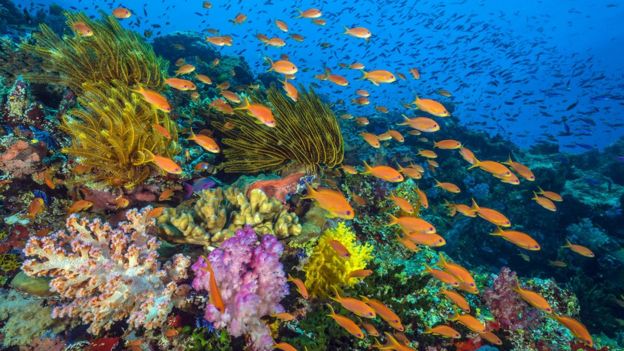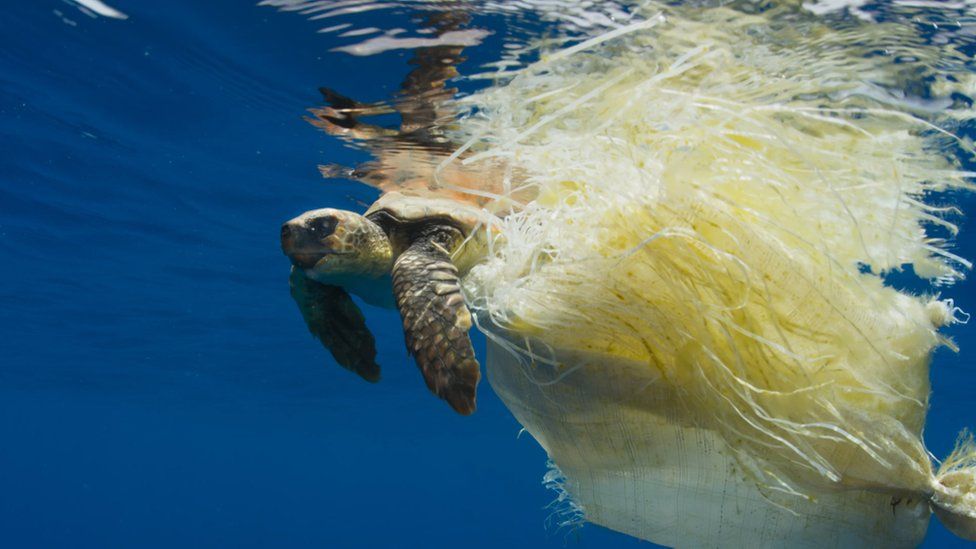Blue Planet II: The Future of the Series
What would a Blue Planet III look like?
My previous blog post focused on issues in the recent Blue Planet II. This post discusses the future of the series in our changing world. A pattern so far suggests that a new series is released during every decade, with the first In 2001 and the second in 2017, meaning potentially we could expect to see a third some time in the late 2020s.
Attenborough's Plea
Scientists predict that by 2050 there may be no commercial fish stocks left in the sea and by 2100 The Great Barrier Reef will be dead. If human actions do not change, by the time Blue Planet III would be released we could be well on our way towards many significant losses.
During the series we see examples of human interference in the oceans. Episode 7, 'Our Blue Planet' taught us about the consequences of plastic, involving albatrosses, whales and a hawksbill turtle.
To conclude Blue Planet II, Sir David Attenborough addressed the audience with an important request in the hope to inspire the public to take responsibility for our planet.
This is a prime example of how documentary can directly address the audience further than the power of image and story and can spread a message nationally and even globally. It is also evident that Attenborough's speech caused a reaction. Some of the audience turned to Twitter to express their thoughts provoked by the series.
"Just watched the blue planet and the devastation us humans are inflicting on our planet. I have lived in Australia and was amazed by the beauty of the Great Barrier Reef, to see how it looks in places now I must admit truly upset me, and we must start to care for this planet more" - @mikeymoone
However, it is not as simple as remembering to turn off the lights and turn down the heating. In order for our climate to take a new turn involves the actions of fossil fuel and agricultural industries. While documentary has the potential to alter the behaviours of the general public, it may not do the same with these major industries when money is the motive."Headmaster Sir David Attenborough has called us all to his office to tell us the error of our ways. He kindly but firmly showed us what we're doing to our planet. I'm truly humbled and very sorry. #BluePlanet2" - @judith_bate
If the course of the planet does not change, we could expect to see content from Blue Planet III featuring more endangered species, devastation and a more littered ocean. Perhaps for this reason there will be no Blue Planet III as the appeal of the show, the display of the natural beauties and wonders of the blue, is lost.
The Voice
Sir David Attenborough is evidently an authoritative figure with great power himself. He is admired by the nation and the series would simply not be the same without him. He is a broadcaster and naturalist who has been in the television industry for over 60 years, bringing us iconic documentaries including Planet Earth and Life on Earth."#BluePlanet2 has been incredible. This last episode has been emotional and inspiring, Attenborough is a true legend and credit to the BBC for an amazing series" - @robT85
However, Attenborough is at the age of 91. There is no way of knowing how long he will remain as the voice and life of the series. Blue Planet II took four years to film and it is not currently at the re-commissioning stage, meaning a new series is not to be expected in the near future. Never the less, Attenborough himself told The Sun "I see no reason whatsoever why I can't live past 100", despite admitting to memory troubles recently.
But being 91 this is no surprise and if the man himself believes he has at least another ten years to provide us with more wonders of the ocean then it seems sensible to believe it! He has also made comments about further series, suggesting that perhaps all we need to worry about it taking care of our planet and not the future of Blue Planet.
"Earth has enough wonders to make more than three Planet Earth series." - Sir David Attenborough



Comments
Post a Comment